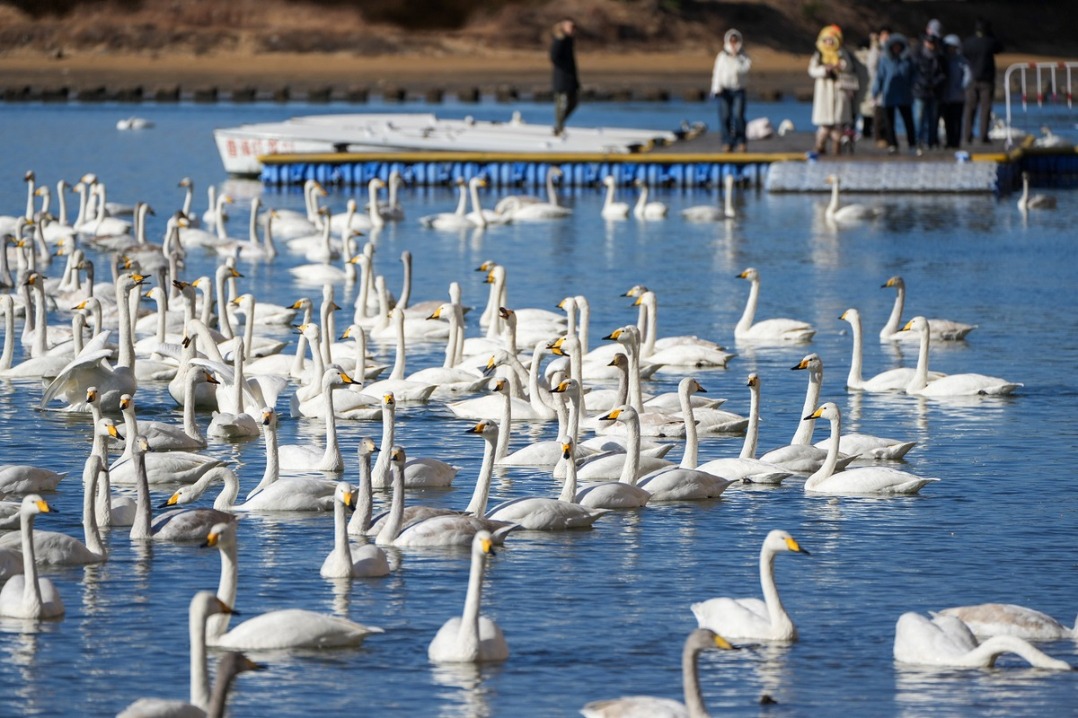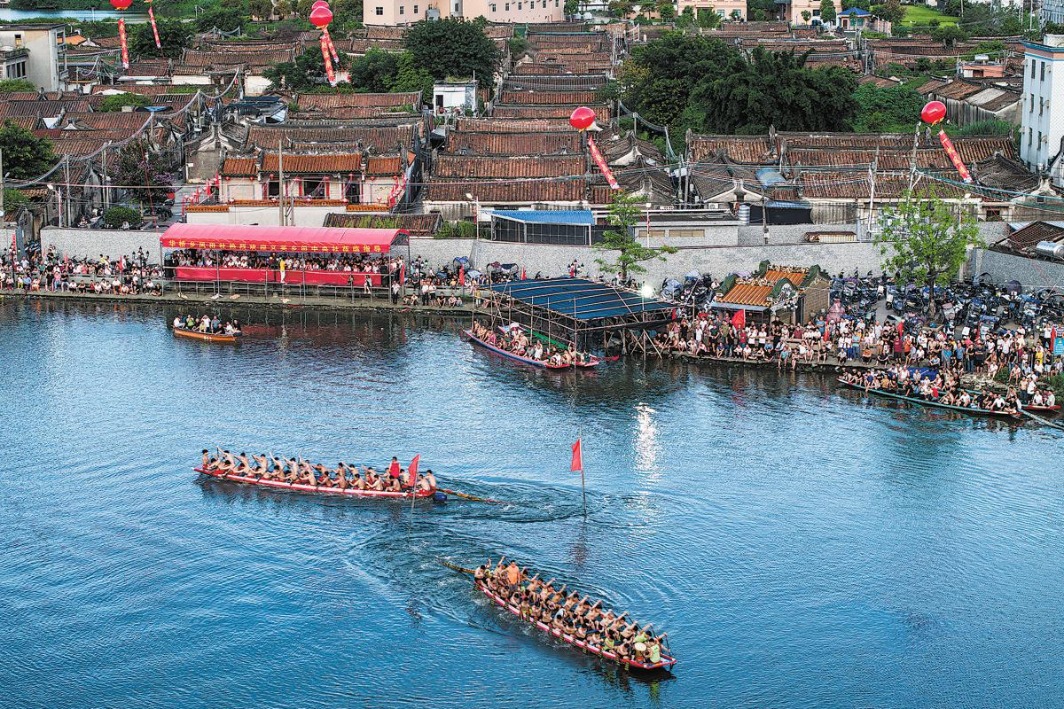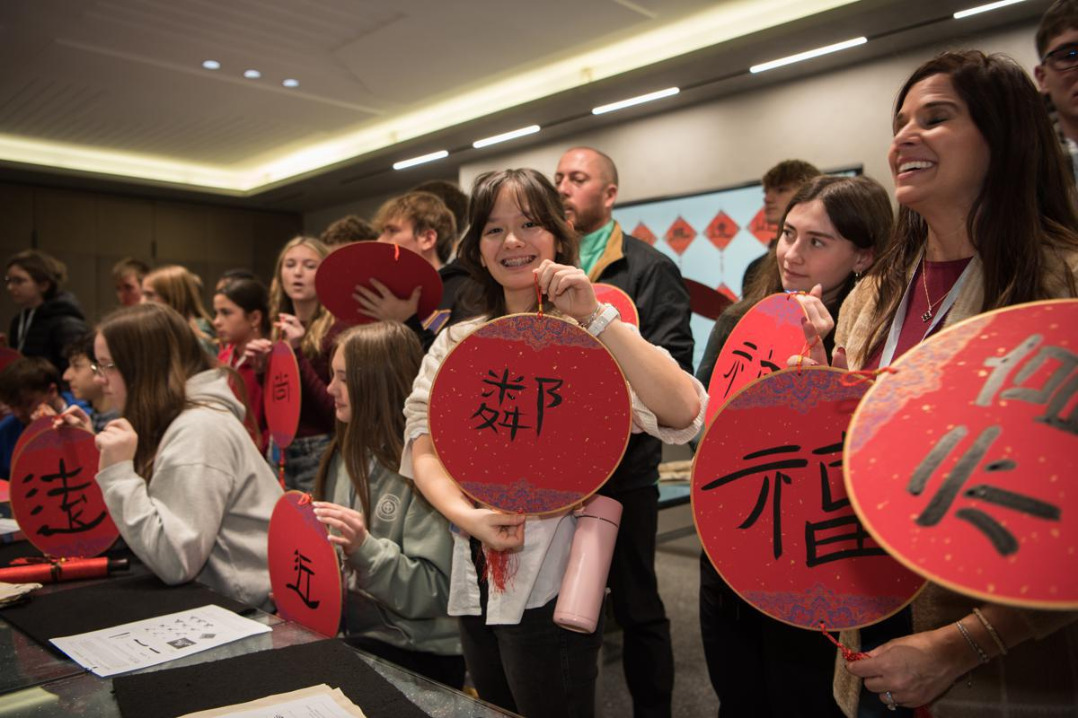HK farmer wriggling profit from earthworm breeding


Lee said he believes the organic agriculture industry has great potential on the mainland.
"Compared with first-tier cities, Huizhou has more space for the development of agriculture. Even if I decided to quintuple the production of earthworms, I would not worry about sales," he said. "Also, I have talked with Pingtan airport officials about selling the worms all over the country by air in the future."
Yang Yu'an, a local farmer who met Lee at a training course, said he heard that Lee was selling worm dung, just in time for watermelon season. Yang decided to try it out by buying just a few hundred kilograms at first.
"The effect of the earthworm dung fertilizer was seen in less than a week," he said.
Yang said that with the fertilizer, not only did the leaves become black and bright, but also the fruit tasted sweeter.
"Moreover, chemical fertilizers, as well as humic acid, potassium fulvic acid and other water-soluble organic fertilizers from agricultural materials stores, used to cost him from 300 yuan to 400 yuan per 0.067 hectare," he said. The earthworm fertilizer, however, only costs 100 yuan to 200 yuan for the same area.
Yang has been using the dung for seedling cultivation and fertilization ever since. Though earthworms themselves are selling well, market recognition of earthworm fertilizer is still low.
Lee said: "The traditional idea is that there is no fertility without smell. Although earthworm dung does not have a strong scent, it is actually rich in all kinds of organic matter needed for plant growth."
He said he is now preparing to apply for an organic fertilizer registration certification so he can open a broader market for earthworm fertilizer.
He has registered his own brand, and the annual output value produced by earthworms has reached 1.9 million yuan.
In addition, about 1,000 metric tons of worm fertilizer are produced every year, he said.
Despite the achievement, Lee said he needs constant challenges.
To this end, he has signed up for an entrepreneurship and innovation competition held in Guangdong this year.
The entry item is "earthworm porous fecal particles as new materials for batteries", a cooperative project between Lee and a Taiwan professor introduced to him by Huizhou University.
They plan to carbonize worm dung and use it to make batteries.
Meanwhile, worm feces is also being added into pig feed to help reduce the chance of the animals being affected by a virus.
"If the project is successful, it could not only increase the scientific and technological process of earthworm breeding, but also extend the industrial chain," Lee said.
As a member of the Huizhou Youth Federation, Lee said he hopes to contribute to youth exchanges and cooperation in the Greater Bay Area.
Meanwhile, he also hopes to help more young Hong Kong residents who want to come to Guangdong to start businesses and find employment opportunities in the field of organic agriculture.
He said he intends to establish a Hong Kong youth agricultural entrepreneurship base in Huizhou to provide a platform for entrepreneurship exchange.
He also wants to provide agricultural knowledge training, production guidance and other services to Hong Kong youth interested in launching organic agricultural startups, by inviting experts from South China Agricultural University and relevant research institutes and associations in Hong Kong.
Doing this will help young people better integrate into the Greater Bay Area and encourage them to contribute to its development, Lee said.
Fu Lidan contributed to this story.
- China's civil aviation sector achieves steady growth in 2025
- How a decade of dedicated protection is transforming China's mother river
- Xizang's highway network grows to 125,200 kilometers
- Newborn's finger severed at hospital, sparking public concern
- Over 6,000 migratory whooper swans flock to E China's Rongcheng to spend winter
- Geospatial info sector growing rapidly





































